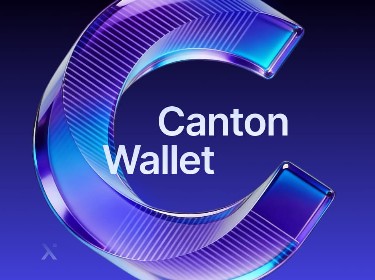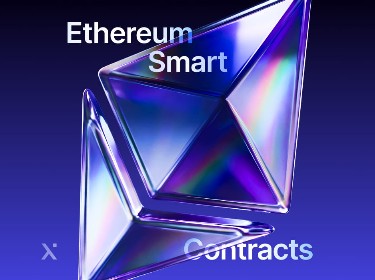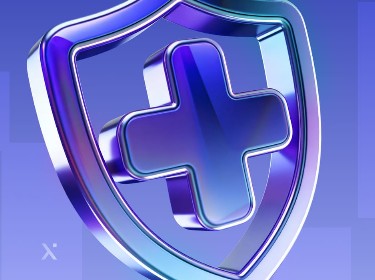From May 24th to 27th, CoinDesk hosted Consensus, a global conference for cryptocurrency and blockchain supporters. Tech-savvies and crypto enthusiasts gladly joined this virtual event to explore and discuss digital currency and blockchain technology evolution as well as its current trends.
Consensus first took place in 2015 and has since become the traditional annual meeting for blockchain professionals, trend-following companies, and crypto beginners. The event was usually held in New York, but the COVID-19 pandemic has made its own adjustments here as well. As a result, this year Consensus organizers offered attendees an immersive virtual experience.
The CoinDesk online event brought together over 10,000 attendees who readily delved into multiple aspects of blockchain, Bitcoin, and digital currencies and exchanged views on the future of emerging technology, crypto market, and digital assets.
Being immensely engrossed in blockchain and crypto trends, PixelPlex couldn’t miss the event. Our specialists anticipated hearing the opinions of other experts on the ups, downs, success, and issues related to the development of technology and its new applications.
Unlocked101
In the lead-up to Consensus, CoinDesk hosted Unlocked 101, a free three-week course designed for those just starting their crypto journey. In this series of interactive explainers sponsored by BitGo, crypto newbies received valuable knowledge about what blockchain and digital currencies are, how to set up a crypto wallet, and store and trade Bitcoin, Ether, and other cryptocurrencies. They also learned about a variety of tokens, found out about the NFT craze, and so on.
Unlocked 101 sessions were also suitable for crypto enthusiasts who needed to refresh their knowledge and get their questions answered.
A few days after this course, the main event kicked off.
Notable speakers
During four days of the virtual conference, blockchain experts have covered an extremely wide range of topics. Let’s take a look at the most prominent events and speeches from Consensus 2021 and see how the crypto world is getting on.
Day 1
The first day of Consensus was mainly devoted to Bitcoin: experts discussed peculiarities of a “bitcoinized” world, touched upon the corporate adoption of Bitcoin, investment strategies for crypto, and shared their views on how Bitcoin affects energy consumption.
Dr. Lael Brainard, Federal Reserve Governor, was one of the first speakers. She expressed her own opinion about cryptocurrencies and a digital dollar.
Ms. Brainard also mentioned that digital payments and the rise of private money are two main factors driving the increased focus on central bank digital currencies (CBDCs).
At the same time, she noted that there are several issues that need to be considered and addressed before the US can launch a digital dollar. She mentioned that it’s of primary importance to do the following: preserve access to “safe central bank money,” increase financial inclusion, payment, and clearing efficiency, and protect both financial stability and personal privacy.
Ms. Brainard admitted that the regulatory framework is in need of further development and should be used by various agencies with jurisdiction over the digital asset sector. She believes the US should do its part in developing the cross-border payment system standards that CBDC could provide.
After the address from Dr. Lael Brainard, Ray Dalio, an American investor and hedge fund manager, founder of Bridgewater Associates, spoke about the future of money, monetary policy, Bitcoin, and its place in the American and global financial system.
In Mr. Dalio’s opinion, the current situation with the US dollar is very similar to the devaluation of 1971. He also thinks that China threatens the dollar’s role as the world’s reserve currency. Mr. Dalio said that taking into account these issues, Bitcoin looks increasingly attractive as a savings vehicle.
Ray Dalio noted,
“The world is going to change at an incredibly fast pace. Whoever wins the technology race, wins it all, economically, and militarily. That’s what the next five years look like.”
He also added that in an inflationary scenario, he would rather have Bitcoin than a bond. However, the billionaire doubts that the government will allow a situation in which money becomes “trash” and bitcoin – a store of value.
Cynthia Lummis, US Senator, joined the virtual conference to share her thoughts about creating a clear US regulatory framework for cryptocurrency and more generally – about politics and governance in our bitcoinized world.
Senator Lummis also pointed out that the US, on its way to strengthen digital asset regulation, should also make efforts towards a digital dollar. She believes that a central bank digital currency or a stablecoin will help the country compete with China’s digital yuan.
The senator mentioned that the Chinese government is planning to expand the use of the digital yuan at the 2022 Winter Olympics, so the US needs to make sure that the country is still strong in digital asset innovation.
Day 2
The second day of the event gathered many big names in crypto and beyond. Blockchain and crypto professionals exchanged views on cryptocurrency brokerage services, the decentralization of digital identity systems and impact on data privacy, the state of crypto in China and South Korea, and the NFT boom.
Michael Saylor, CEO of MicroStrategy, focused on Bitcoin’s energy usage in his speech. Mr. Saylor shared that he teamed up with Tesla CEO Elon Musk and executives of major Bitcoin mining operators in North America to create the Bitcoin Mining Council. It is an organization that will publish data on Bitcoin energy consumption to eliminate concerns that crypto is not environmentally friendly.
In a conversation at Consensus 2021, Michael Saylor provided detailed insights about this initiative. He said that there is a lack of information on energy consumption, so others are creating their own models, which may not look flattering for the industry. Michael Saylor, Elon Musk, and Bitcoin mining operators are aiming to develop a protocol that will allow them to publish and share data on energy usage with the world so that together people could make sure that everyone is adhering to sustainable energy goals.
Justin Sun, the TRON founder, “thanked” Elon Musk for bringing people into crypto and focusing media and large companies’ attention on it.
Justin Sun and his team recently celebrated 3 years since the launch of the Tron mainnet. According to TRONSCAN, the total number of accounts on the Tron public chain has exceeded 38 million.
Apart from jokes about Elon Musk and his impact on Bitcoin, Mr. Sun also boasted that the Tron blockchain contains more transactions than PayPal, the company previously run by Elon Musk.
Speaking seriously, he added,
“I believe the competition in the industry breeds perfection. So we need different blockchains to compete with each other. We have to generate ideas… and find out basically the right path for the industry.”
Roham Gharegozlou, CEO of Dapper Labs, couldn’t miss this big event as it is his platforms that are greatly contributing to the NFT development. His company Dapper Labs created extremely popular and successful CryptoKitties and NBA Top Shot.
At Consensus 2021, Mr. Gharegozlou spoke about NBA Top Shot and how this blockchain-based platform for basketball fans took the world by storm.
First, he shared impressive numbers: in less than a year, Dapper Labs’ NFT platform generated $700 million in total sales and gathered 1 million users. Half of them have purchased packages and 150,000–250,000 users log in and surf the platform every day.
Mr. Gharegozlou explained that the $700 million figure comes mostly from secondary market trading. He added that although we still see the headlines that some highlights have been sold for thousands or even millions of dollars, the reality is different: out of the 4.5 million transactions in the past few months, more than 3 million were under $50.
The CEO of Dapper Labs also discussed his firm’s success. He said it has come from creating products that people are willing to use and that are easy to use. In addition to that, Mr. Gharegozlou made it clear that their company supports the mass adoption of cryptocurrency.
He said,
“Put a crypto wallet in everybody’s pocket, that’s the number one mission.”
A steady number of sports fans using the platform, stable sales of moments for reasonable money, and people’s love for collecting will keep NBA Top Shot afloat, even if the interest in NFT cools off.
Roham Gharegozlou also mentioned their new blockchain called Flow. NBA Top Shot is already successfully working on its basis. In our article, we take a closer look at this novelty and analyze how it differs from the Ethereum blockchain.
Day 3
During the third day of CoinDesk’s Consensus, blockchain and crypto experts brought up topics such as crypto tax treatment around the globe, different approaches to crypto regulation, DeFi and protocols, and the future of cryptocurrency.
Michael Mosier, Financial Crimes Enforcement Network (FinCEN) acting director, joined the conversation as well.
Mr. Mosier commented on the proposed rule to collect counterparty data for transactions to unhosted wallets and demand currency transaction reports (CTRs) for transactions that exceed $10,000. “Nothing’s been decided,” he said.
Part of FinCEN’s mandate as a financial intelligence unit (FIU) is watching trends or evaluating risks through data analysis. The agency may also get a task to investigate specific incidents. Mr. Mosier named the January 6 riots at the US Capitol as one of the issues FinCEN could look into:
“There was cryptocurrency involved … about $500,000, which actually is more than enough to fund something like the riot. And that’s the sort of thing that activates Congress.”
The cryptocurrency ended up in wallets linked to exchanges. Michael Mosier added that Congress might ask how they track other potential domestic terrorist attacks, possibly crypto-funded.
At the same time, he noted that not everyone in the US government is initially suspicious of cryptocurrency. Many believe that it has incredible potential, especially in terms of access to financial services and as a technical solution to many policy issues.
Mr. Mosier concluded,
“Don’t just send us your lawyers. Send in the technical experts, the core developers.”
Day 4
The last day of the CoinDesk virtual conference was as busy as the previous ones. The event participants continued to discuss crypto, exchanges, and DeFi from different angles.
Changpeng “CZ” Zhao, founder and CEO of Binance, outlined his vision of the future of Bitcoin and current issues related to regulatory scrutiny around Binance.
CZ confidently claimed that no one can kill Bitcoin and explained his point of view:
“I don’t think anyone can shut it down now, given that this technology, this concept, is in 500 million people’s heads.”
He believes that state governments and regulators should embrace blockchain and cryptocurrencies because the latter are not going to destroy traditional finance or government-backed fiat currencies. Instead, they will provide more freedom of money.
He likened fighting against crypto to refusing to accept Amazon’s online business model in the early 1990s. He has linked it with Binance which is currently subject to increased regulatory scrutiny.
Mr. Zhao assured,
“We are not going against governments. There are times where the regulators or rules are not super clear. They are still being established in most parts of the world so there are some gray areas. But we’ve just got to experiment and work together and figure that out.”
Hayden Adams, founder of Uniswap, talked about Uniswap’s place in decentralized finance and commented on when and how liquidity mining is returning to the protocol.
Uniswap is one of the most widely used decentralized applications built on the Ethereum blockchain. Plus, according to Mr. Adams, Uniswap will be running a liquidity mining program again very soon.
Last year, Uniswap distributed its UNI governance token to eligible stakeholders and launched a very short liquidity mining program in several key liquidity pools. After that users were unable to earn a new UNI (except the Uniswap grants program).
This month, Uniswap released the third version of its software, which quickly became one of the most popular Ethereum decentralized exchanges.
Would like to get your head around liquidity mining? Click here to explore this phenomenon and find out how it works
Among other novelties and memorable events was the launch of DESK, a beta version of CoinDesk’s own reward token. This token is based on the Ethereum ERC-20 standard and all transactions are gas-free.
DESK rewards include virtual trading NFT cards, physical CoinDesk swag, virtual meetings with VIPs (were possible during the conference), sponsor swag, and first access to new products from partners.
When Consensus 2021 came to an end, the token holders could still store, spend or send DESK tokens.
Since this was the first event run by CoinDesk using the DESK token, the organizers primarily focused on giving the conference attendees a unique experience and providing them with amazing possibilities of DESK even beyond Consensus.




